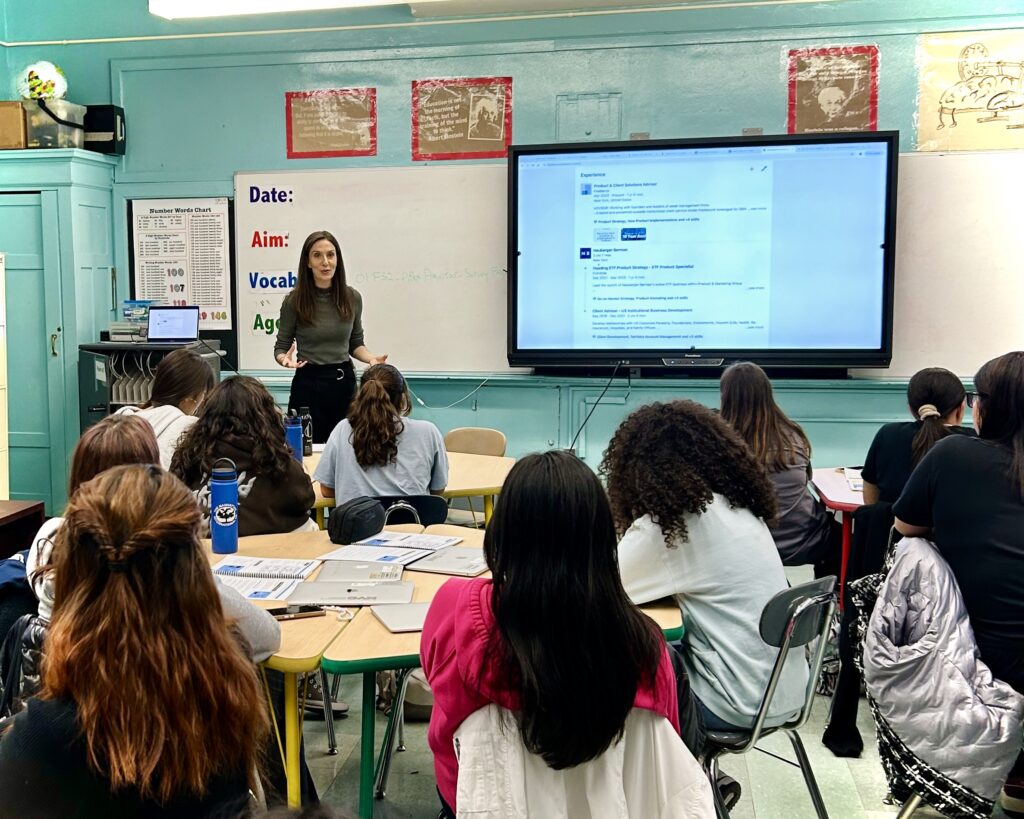INSPIRED and JOYFUL…
That’s how I feel after teaching the Rock the Street Wall Street (RTSWS) fall workshop series on finance and investing to a cohort of 25 young ladies at a NYC public high school dedicated to international students.
These talented, multi-lingual students are navigating a new education system and new financial system, while learning in a second or third language…impressive to say the least.
Driving my own career in finance is the mission to financially empower women through investing…a crucial part of closing the gender wealth gap and enabling women to create more choices for themselves when making life decisions.
Personal financial education was not taught when I was in high school (I wish it were!), and I’m excited that RTSWS is changing that with a presence in over 70 high schools across 25+ cities in the US and now expanding to the UK and Canada.
RTSWS specifically focuses on high school girls while working will all-female volunteers from the finance industry. Their goal is to build interest in mathematics and the pipeline of girls pursuing careers in STEM-related fields.
“Research indicates that girls in the US, UK and Canada perform on par with boys in math during elementary and middle school, but their performance wanes significantly in high school/secondary school, and beyond, known as the ‘gender gap.’
Contributing factors include societal biases, lack of female role models in math-related fields, and gender-based socialization. It’s important to recognize that this gap varies across regions and cultures.”
– Rock the Street Wall Street
WHAT IMPACT DOES A SUPPORTIVE LEARNING COMMUNITY FOR YOUNG WOMEN HAVE?
- We started by asking what classroom norms are important to the students…respect and empathy they said.
- Students worked through and helped to explain investment topics to each other
- We connected real life examples to the topics covered. For example, we asked what type of products the students buy…make-up was one answer shared. We discussed how make-up purchases impact a cosmetic company’s cash flow, how that drives profitability, and the resulting impact to its stock price.
DURING THE 5-WEEK PROGRAM, WE DISCUSSED…
- Simple and compound interest and how it relates to loans and bonds
- Stocks and bonds, the type of institutions that issue these securities and why
- Retirement accounts, the impact of taxes, and types of investments like Exchange Traded Funds (ETFs) and mutual funds.
- Investment risk, what it is, what drives it, and the role of diversification in a portfolio
- College financial planning:
- – Why attend college and the benefits
- – Associated costs (beyond tuition)
- – How to pay for college (financial aid, student loans, scholarships, and grants)
- – Potential salaries for different professions
- – How to think about the return on investment in college
- The role of LinkedIn for professional networking
I am so proud of these students!

November 15, 2024
